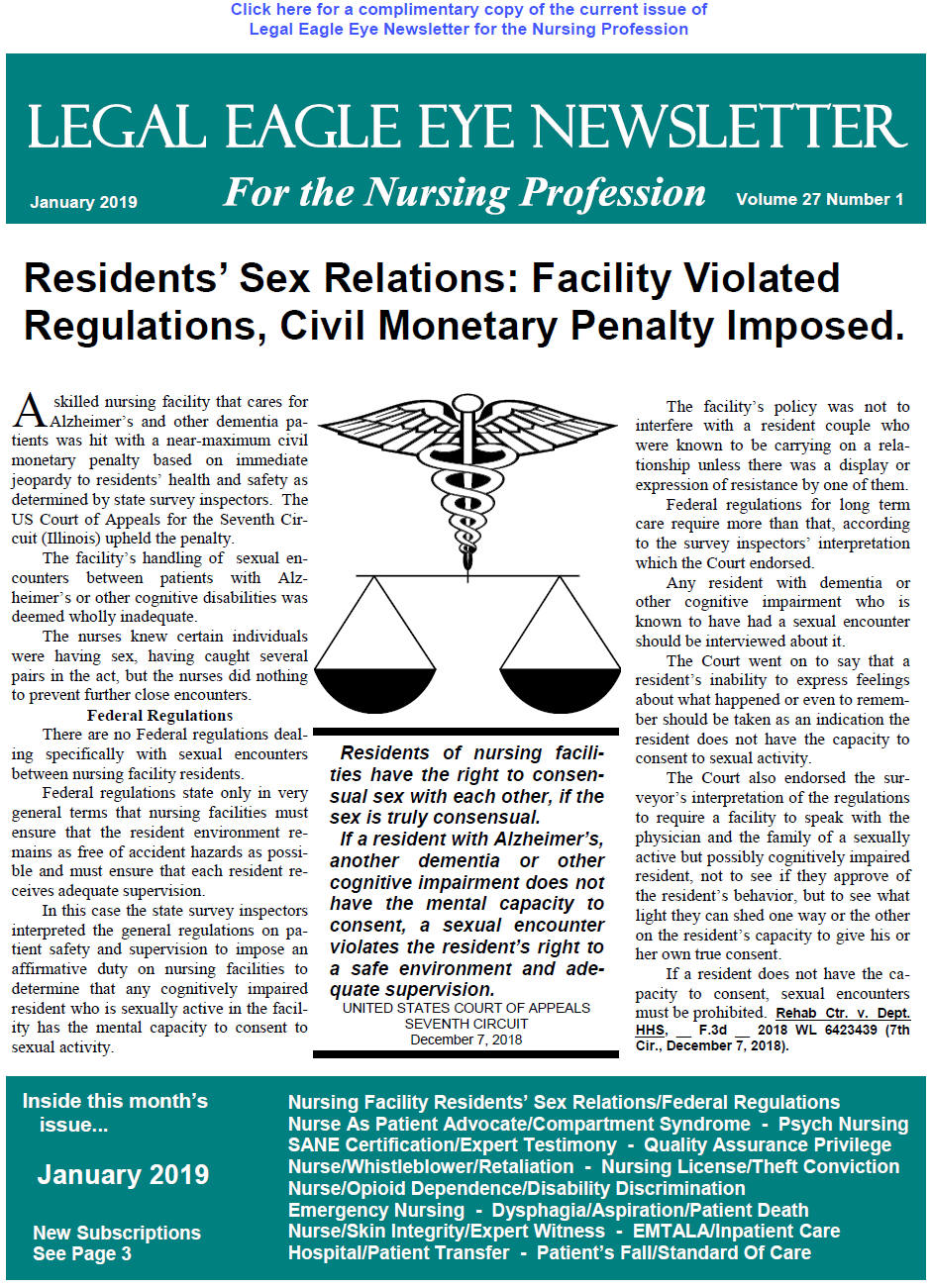
| Quick Summary: Residents of nursing facilities have the right to consensual sex with each other, if the sex is truly consensual. |
Residents' Sex Relations: Nursing Facility Violated Regulations, Civil Monetary Penalty Imposed.
If a resident with Alzheimer's, another dementia or other cognitive impairment does not have the mental capacity to consent, a sexual encounter violates the resident's right to a safe environment and adequate supervision. UNITED STATES COURT OF APPEALS SEVENTH CIRCUIT December 7, 2018.
A skilled nursing facility that cares for Alzheimer's and other dementia patients was hit with a near-maximum civil monetary penalty based on immediate jeopardy to residents' health and safety as determined by state survey inspectors. The US Court of Appeals for the Seventh Circuit (Illinois) upheld the penalty. The facility's handling of sexual encounters between patients with Alzheimer's or other cognitive disabilities was deemed wholly inadequate.
The nurses knew certain individuals were having sex, having caught several pairs in the act, but the nurses did nothing to prevent further close encounters.
There are no Federal regulations dealing specifically with sexual encounters between nursing facility residents. Federal regulations state only in very general terms that nursing facilities must ensure that the resident environment remains as free of accident hazards as possible and must ensure that each resident receives adequate supervision.
In this case the state survey inspectors interpreted the general regulations on patient safety and supervision to impose an affirmative duty on nursing facilities to determine that any cognitively impaired resident who is sexually active in the facility has the mental capacity to consent to sexual activity.
The facility's policy was not to interfere with a resident couple who were known to be carrying on a relationship unless there was a display or expression of resistance by one of them. Federal regulations for long term care require more than that, according to the survey inspectors' interpretation which the Court endorsed. Any resident with dementia or other cognitive impairment who is known to have had a sexual encounter should be interviewed about it.
The Court went on to say that a resident's inability to express feelings about what happened or even to remember should be taken as an indication the resident does not have the capacity to consent to sexual activity.
The Court also endorsed the surveyor's interpretation of the regulations to require a facility to speak with the physician and the family of a sexually active but possibly cognitively impaired resident, not to see if they approve of the resident's behavior, but to see what light they can shed one way or the other on the resident's capacity to give his or her own true consent. If a resident does not have the capacity to consent, sexual encounters must be prohibited.
Rehab Ctr. v. Dept. HHS, __ F.3d __ 2018 WL 6423439 (7th Cir., December 7, 2018).